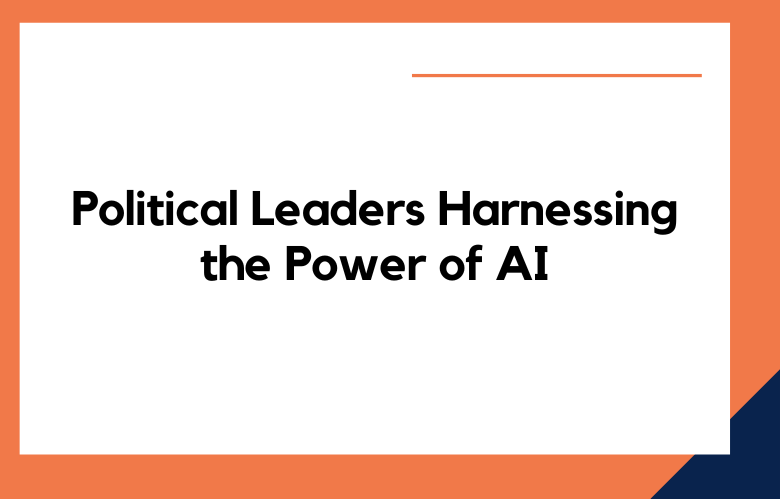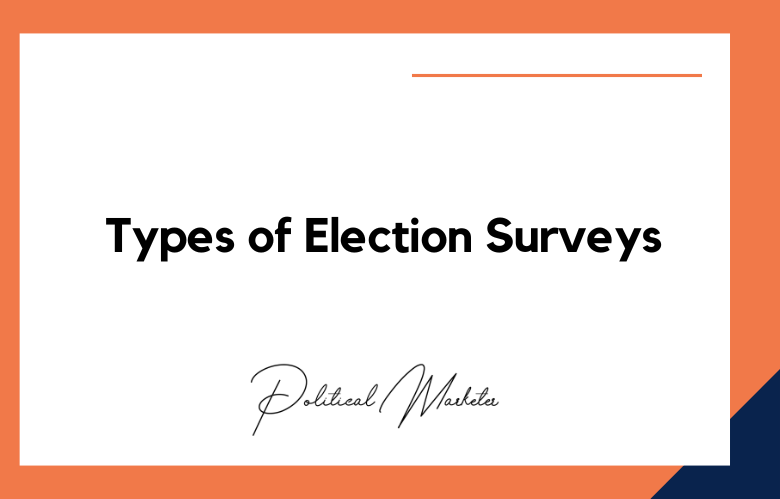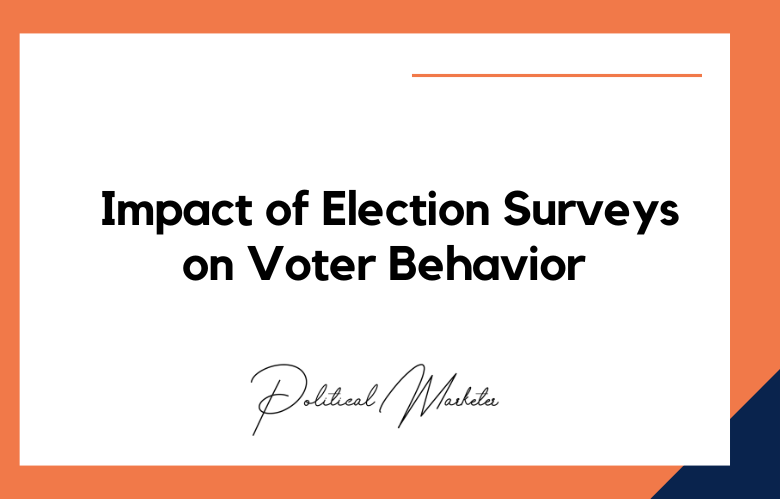In today’s world, technology has become an integral part of our lives. Advancements in technology have made it easier for political leaders to connect with their constituents. Smart campaigning is the latest buzzword in the political arena, and it is all about harnessing the power of AI to gain a competitive edge over the opposition.
AI can potentially transform campaigning, making it more efficient and effective than ever. We will discuss how political leaders use AI to embrace smart campaigning and gain an edge in elections.
AI in Politics: Examining Case Studies of Electoral Success
Artificial Intelligence (AI) is rapidly transforming various fields of human endeavor, and politics is no exception. With the evolution of sophisticated AI algorithms, political campaigns increasingly use AI technology to gain electoral advantage. In this regard, examining case studies of electoral success facilitated by AI provides valuable insights into the impact of this technology on political campaigns.
One of the most notable case studies of AI-driven electoral success is the 2016 US Presidential Election. President Donald Trump’s campaign strategically utilized data analysis and targeted advertising using AI algorithms to reach voters on social media platforms like Facebook.
The Future of Elections: How Political Leaders Leverage AI
As we delve into the increasingly complex world of politics, it is evident that technology has become an integral component. Artificial intelligence (AI), in particular, has emerged as a powerful tool for politicians and political parties seeking electoral success. In this regard, examining case studies of past political campaigns that leveraged AI can provide invaluable insights into this technology’s efficacy and potential applications in politics.
One such case study is the 2016 US Presidential Election, which saw the Trump campaign utilizing data mining and machine learning algorithms to analyze and target potential voters. The campaign’s data team used AI to sift through over 100 million social media accounts and build a detailed profile of individuals likely to vote for Trump.
This enabled the campaign to tailor its messaging and advertising efforts to specific demographics. Some estimates credit AI-powered social media campaigns with giving the Trump campaign up to a 40% advantage in targeted advertising over their rivals.
Artificial Intelligence: A Game-changer for Political Campaigns
Artificial intelligence (AI) has revolutionized the way political campaigns are conducted. The application of AI in politics has changed the game in a significant way. Politicians can gain insights into voter behavior, political preference, and sentiment through sophisticated data analytics.
One of the most significant advantages of using AI in political campaigns is understanding the voter mentality. AI algorithms can analyze vast amounts of data from social media, voter demographics, public opinion polls, and voting history, among other sources, to identify voting patterns, track voter opinions, and predict election outcomes.
Winning Strategies: How AI Enhances Electoral Success
One of the most significant and revolutionary advancements today in electoral campaigns is incorporating Artificial Intelligence (AI). Artificial Intelligence has changed the game of politics by providing analytical and predictive capabilities to strategize campaigns and engage with voters.
The benefits of AI in electoral campaigns are numerous. AI can analyze vast amounts of data, such as demographics, historical voting trends, and social media engagement, to identify and target critical constituencies. Furthermore, AI can track opinion polls, assess voting patterns, and recognize trends to forecast election results better.
One way AI enhances electoral success is through targeted, personalized campaigning. Campaigns can harness AI algorithms to personalize political messaging, tailoring it to specific voters’ needs and interests. This personalized campaigning is more efficient in persuading voters to support a particular candidate by providing relevant information according to their preferences.
From Algorithms to Votes: Political Leaders Utilizing AI
Technological advancements in Artificial Intelligence (AI) have steadily transformed the global landscape, from medicine to transportation. However, AI’s impact on the political arena is a relatively new concern, particularly regarding the potential implications of such technology on the fate of political leaders.
Many countries have begun exploring the significant potential for AI in political campaigns as it can optimize a candidate’s marketing campaign by targeting the desired audience and predicting voting patterns, ultimately giving them a strategic edge.
Political campaigns leverage AI-driven algorithms to analyze data collected through social media apps to target and influence susceptible voters. This helps the candidates formulate better policy positions and effectively communicate with the general public.
Data-Driven Democracy: Case Studies of AI in Politics
Data-Driven Democracy is an emerging concept in politics and governance that leverages artificial intelligence (AI) and advanced technologies to drive decision-making processes. This intriguing approach entails collecting and analyzing vast amounts of data from various sources to inform policymaking, enhance transparency, and improve citizen participation.
Several countries and politicians worldwide have embraced this emerging trend, producing notable achievements. For instance, Estonia, a small, tech-savvy nation, is regarded as a pioneer in this domain, leveraging technology to increase citizen participation and improve public services.
AI-assisted Politicking: Success Stories of Political Leaders
In recent years, artificial intelligence (AI) has become an increasingly popular tool for political leaders looking to gain an edge in their campaigns and improve their decision-making abilities. Numerous success stories have emerged from politicians who have harnessed the power of AI to help them achieve their goals.
One such success story is that of Obama, who famously used AI during his 2012 re-election campaign. Obama’s campaign team used sophisticated algorithms to analyze data on voter demographics, social media activity, and other factors to determine which messages and images were most likely to resonate with different groups of voters.
This allowed the campaign to tailor its messaging and outreach efforts for maximum impact and is widely credited with helping Obama secure a decisive victory over his opponent, Mitt Romney.
Electoral Victories: Political Leaders Unlocking AI’s Potential
Over the past decade, Artificial Intelligence (AI) has gained significant attention as a potential game-changer in various fields, including politics.
Advancements in AI technology have transformed how election campaigns are run and how political candidates interact with their constituents. Today, political leaders who leverage AI are gaining an edge over their opponents, ultimately leading to electoral victories.
One of the critical areas where AI is impacting politics is in data analysis. With AI-powered data analytics tools, political candidates can gather large volumes of data on their constituents, including their voting patterns, issues of concern, and demographics. This data can help candidates develop targeted campaign messages and strategies that resonate with their members, leading to a higher chance of winning elections.
Leveraging Machine Learning: Case Studies of Political Triumphs
In today’s fast-paced political landscape, traditional political campaign methods no longer cut it. A new player has entered the field: Machine Learning, which is proving to be the game-changer for political campaigns.
By leveraging the untapped potential of Machine Learning, political parties are finding new and innovative ways to reach out to their electorate, giving them the edge they need in an increasingly competitive political environment.
One of the most prominent examples of the use of Machine Learning in politics was witnessed during the 2016 US presidential election when the Republican Party utilized Machine Learning to analyze data such as social media behavior, online browsing habits, and other metrics to create a customized campaign for each voter. This allowed the party to target each voter directly, resulting in improved voter turnout and a sweeping victory for the party.
Conclusion:
AI can potentially transform campaigning, making it more efficient and effective than ever. Using AI, political leaders can improve data analytics, personalize campaign messages, optimize social media strategies, streamline fundraising, and engage with voters more effectively.
Smart campaigning powered by AI can help political leaders gain a competitive edge over their opponents and achieve electoral success. As technology evolves, AI will continue to be a critical tool for political leaders looking to connect with voters more effectively. With AI tools, political leaders can create campaigns that resonate with voters and ensure their messages are heard clearly.
Call: +91 9848321284
Email: [email protected]
Smart Campaigning: Political Leaders Harnessing the Power of AI: FAQs
What Is Smart Campaigning In Politics?
Smart campaigning uses artificial intelligence (AI) and data analytics to optimize voter outreach, messaging, and campaign decision-making.
How Are Political Leaders Using AI In Election Campaigns?
Leaders use AI for predictive modeling, voter sentiment analysis, microtargeting, content optimization, and real-time feedback during campaigns.
Can AI Help Identify Undecided Or Swing Voters?
AI algorithms analyze voter behavior, social signals, and demographics to flag individuals most likely to shift positions or require persuasion.
What Is AI-Powered Microtargeting?
It uses AI tools to deliver hyper-personalized messages to small voter segments based on interests, behavior, and predicted voting patterns.
How Does AI Enhance Voter Sentiment Analysis?
AI scans social media, news coverage, and online comments to gauge public emotion and attitudes toward candidates or policies in real time.
Can AI Automate Political Content Creation?
AI tools generate tailored headlines, social posts, and even ad copy to match voter interests, campaign tone, and trending topics.
What Role Does AI Play In Real-Time Campaign Optimization?
AI continually analyzes campaign performance metrics and recommends targeting, budget allocation, and content format adjustments.
How Does AI Improve Fundraising Campaigns?
AI segments donor lists, predicts high-probability contributors, and personalizes appeals to maximize campaign contributions efficiently.
Can AI Predict Election Outcomes?
While not foolproof, AI can forecast likely results using historical voting data, turnout models, and real-time voter sentiment inputs.
How Is AI Used In Political Ad Targeting?
AI platforms match messages to audiences across digital channels like YouTube, Meta, and programmatic display networks.
What Are The Benefits Of Using AI In Door-To-Door Canvassing?
AI-powered mapping tools help campaigns prioritize outreach locations, identify persuadable households, and assign tasks efficiently to volunteers.
How Can Chatbots Be Used In Political Campaigns?
AI-powered chatbots answer voter queries, collect data, share policy information, and simulate interactive conversations with constituents.
Is AI Being Used In Voter Registration Drives?
Yes, AI helps target unregistered eligible voters, sends reminders, and uses geolocation data to assist with the registration process navigation.
How Does AI Influence Political Messaging Strategy?
AI suggests which messages resonate most based on engagement metrics and feedback loops, helping refine campaign narratives.
Can AI Help With Crisis Communication During Campaigns?
Absolutely. AI detects emerging issues, monitors misinformation, and suggests timely, data-driven responses across media channels.
What Ethical Concerns Are Associated With AI In Politics?
Concerns include data privacy, algorithmic bias, manipulation of public opinion, and lack of transparency in decision-making processes.
How Can Campaigns Ensure Responsible AI Usage?
By adopting ethical AI guidelines, securing data consent, auditing models regularly, and being transparent with the public.
What Skills Do Political Teams Need To Use AI Effectively?
They need data science, AI tools, digital marketing, cybersecurity, and voter behavior analytics expertise.
Are AI Tools Accessible To Local And Regional Campaigns?
Many scalable and affordable AI solutions exist that cater to smaller campaigns and grassroots movements.
What Is The Future Of AI In Political Campaigning?
The future includes predictive policymaking, emotion-aware media, automated campaign management, and deeper personalization at scale.










